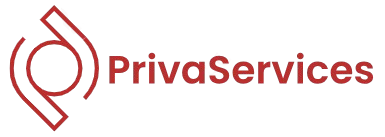Unlocking the Power of Personal Branding: Tips for Success
In today’s competitive world, standing out from the crowd is essential for success. Personal branding has become a crucial tool for individuals looking to distinguish themselves and make an impact in their chosen field. Whether you’re an entrepreneur, a freelancer, or a corporate professional, cultivating a strong personal brand can open doors, attract opportunities, and help you achieve your goals.
But what exactly is personal branding, and how can you harness its power to propel your career forward? In this comprehensive guide, we will explore the ins and outs of personal branding, offering valuable tips and strategies to help you build a strong and authentic personal brand. From defining your unique value proposition to leveraging social media effectively, we will cover everything you need to know to create a compelling personal brand that sets you apart from the competition.
The Power of Personal Branding
Personal branding is the practice of marketing yourself as a unique individual, showcasing your skills, expertise, and personality to differentiate yourself from others. Your personal brand is what sets you apart from your peers and establishes your reputation in your industry. In today’s digital age, personal branding has become more important than ever, as employers, clients, and partners increasingly turn to the internet to research and evaluate individuals.
By creating a strong personal brand, you can effectively communicate who you are, what you stand for, and what you have to offer. This can help you attract new opportunities, build credibility and trust with your audience, and ultimately advance your career. Whether you’re looking to land your dream job, grow your business, or establish yourself as an industry expert, personal branding can be a powerful tool to help you achieve your goals.
Defining Your Personal Brand

The first step in building a successful personal brand is defining who you are and what you want to be known for. Take some time to reflect on your strengths, values, and passions, and consider how you can leverage these qualities to create a unique and compelling personal brand. Ask yourself questions such as:
- What are my core values and beliefs?
- What are my strengths and areas of expertise?
- What sets me apart from others in my field?
- What do I want to be known for?
By answering these questions honestly and thoughtfully, you can begin to develop a clear and authentic personal brand that accurately represents who you are and what you have to offer. Your personal brand should be a reflection of your true self, so it’s important to be genuine and consistent in your messaging and actions.
Creating a Compelling Personal Brand Story

One of the most effective ways to communicate your personal brand is through storytelling. Your personal brand story should provide insight into who you are, what you do, and why you do it. It should be authentic, engaging, and relatable, helping your audience connect with you on a deeper level. When crafting your personal brand story, consider the following tips:
- Start with a strong opening that grabs your audience’s attention.
- Highlight key moments and experiences that have shaped who you are today.
- Showcase your values, beliefs, and passions.
- Illustrate how your unique skills and expertise can benefit others.
- End with a compelling call to action that encourages your audience to engage with you further.
Your personal brand story should be authentic and true to who you are, so don’t be afraid to show vulnerability or share personal anecdotes. This can help you build trust and credibility with your audience, ultimately strengthening your personal brand.
Building Your Online Presence

In today’s digital age, having a strong online presence is essential for building a successful personal brand. Your online presence encompasses all of the ways in which you interact with others online, including your social media profiles, website, blog, and online portfolio. To cultivate a strong online presence, consider the following tips:
- Optimize your social media profiles to reflect your personal brand and showcase your expertise.
- Create a professional website or blog to share your thoughts, insights, and achievements.
- Consistently produce high-quality content that demonstrates your knowledge and expertise in your field.
- Engage with your audience regularly by responding to comments, messages, and inquiries.
- Monitor your online reputation and address any negative feedback or comments promptly and professionally.
By actively managing and cultivating your online presence, you can enhance your visibility, credibility, and influence within your industry. Your online presence is often the first impression that potential employers, clients, and partners will have of you, so it’s important to make it count.
Networking and Building Relationships
Networking is a key component of personal branding, as it allows you to connect with others in your industry, expand your professional circle, and open up new opportunities. Building strong relationships with others can help you establish credibility, gain valuable insights, and access new resources. To network effectively and build meaningful relationships, consider the following tips:
- Attend industry events, conferences, and networking mixers to meet new people and expand your network.
- Join professional organizations, online communities, and networking groups to connect with like-minded individuals.
- Engage with influencers and thought leaders in your industry by commenting on their posts, sharing their content, and reaching out to them directly.
- Offer to help others by sharing your knowledge, expertise, and resources without expecting anything in return.
- Follow up with your contacts regularly to maintain strong relationships and stay top of mind.
Networking is a two-way street, so it’s important to approach it with a spirit of generosity and reciprocity. By building authentic and mutually beneficial relationships with others, you can strengthen your personal brand and create new opportunities for growth and success.
Measuring Your Personal Brand Success
Measuring the success of your personal brand is essential for tracking your progress, identifying areas for improvement, and refining your strategies. There are several key metrics you can use to evaluate the effectiveness of your personal brand, including:
- Online engagement: Monitor the number of likes, comments, shares, and followers on your social media profiles and blog.
- Website traffic: Track the number of visitors to your website, blog, and online portfolio to gauge your online visibility.
- Client or employer feedback: Solicit feedback from clients, employers, and partners to assess their perception of your personal brand.
- Industry recognition: Keep track of any awards, accolades, or speaking engagements you receive as a result of your personal brand efforts.
By regularly analyzing these metrics and adjusting your strategies accordingly, you can ensure that your personal brand continues to evolve and grow in a positive direction. Remember that personal branding is an ongoing process that requires dedication, consistency, and adaptability.
Expert Opinions
To gain further insights into the world of personal branding, we reached out to several experts in the field for their perspectives on the topic. Here’s what they had to say:
“Personal branding is all about authenticity and consistency. Your personal brand should be a reflection of who you are and what you stand for. Stay true to yourself and let your unique personality shine through in everything you do.” – Jane Doe, Personal Branding Coach
“In today’s digital age, it’s more important than ever to actively manage and cultivate your online presence. Your online reputation can have a significant impact on your personal brand, so it’s crucial to maintain a professional and positive image across all digital platforms.” – John Smith, Digital Marketing Expert
Conclusion
To wrap things up, personal branding is a powerful tool that can help you differentiate yourself, attract opportunities, and advance your career. By defining your personal brand, crafting a compelling personal brand story, building your online presence, networking effectively, and measuring your success, you can create a strong and authentic personal brand that sets you apart from the competition.
Remember that personal branding is a continuous journey of self-discovery and self-improvement. Stay true to yourself, be consistent in your messaging and actions, and always strive to add value to others. By following these tips and strategies, you can unlock the full potential of your personal brand and achieve your goals with confidence and authenticity.




